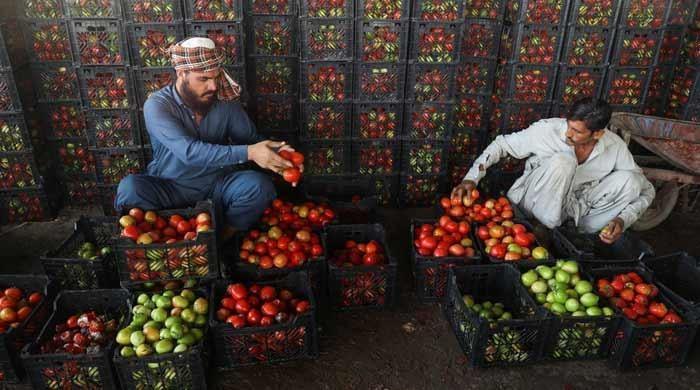Border closures between Pakistan and Afghanistan have driven up prices of essential goods in both nations, with tomatoes now costing five times more in Pakistan since fighting broke out between the two South Asian neighbors this month.
Border crossings between the two countries have remained closed since Oct. 11, following ground fighting and Pakistani airstrikes along their disputed 2,600-kilometer (1,600-mile) border that killed dozens of people on both sides in the worst fighting since the Taliban took over Kabul in 2021.
All trade and transit have been blocked since fighting broke out, Khan Jan Alokozay, head of the Pakistan-Afghan Chamber of Commerce in Kabul, told Reuters on Thursday.
“Every day that passes, both sides lose about a million dollars,” he said.
Fresh fruits, vegetables, minerals, medicines, wheat, rice, sugar, meat and dairy products make up the bulk of the $2.3 billion annual trade volume between the two countries.
Prices of tomatoes, widely used in Pakistani cuisine, have risen more than 400%, to around 600 rupees or $2.13 per kilogram. Apples, which mostly come from Afghanistan, are also seeing a price increase.
“We have about 500 containers of vegetables for export daily, all of which have spoiled,” Alokozay said.
About 5,000 containers of goods are stranded on both sides of the border, a Pakistani official said at the main border crossing of Torkham in northwestern Pakistan.
He said there was already a shortage of tomatoes, apples and grapes in the market.
Pakistan’s Commerce Ministry did not respond to a request for comment.
The border clashes were triggered after Islamabad demanded that Kabul control militants attacking Pakistan across their shared border, saying they were operating from safe havens in Afghanistan. The Taliban have denied the accusation.
A ceasefire was agreed to in talks hosted by Qatar and Türkiye last weekend and remains in place between both sides, but border trade remains closed. The next round of negotiations is scheduled for October 25 in Istanbul.




